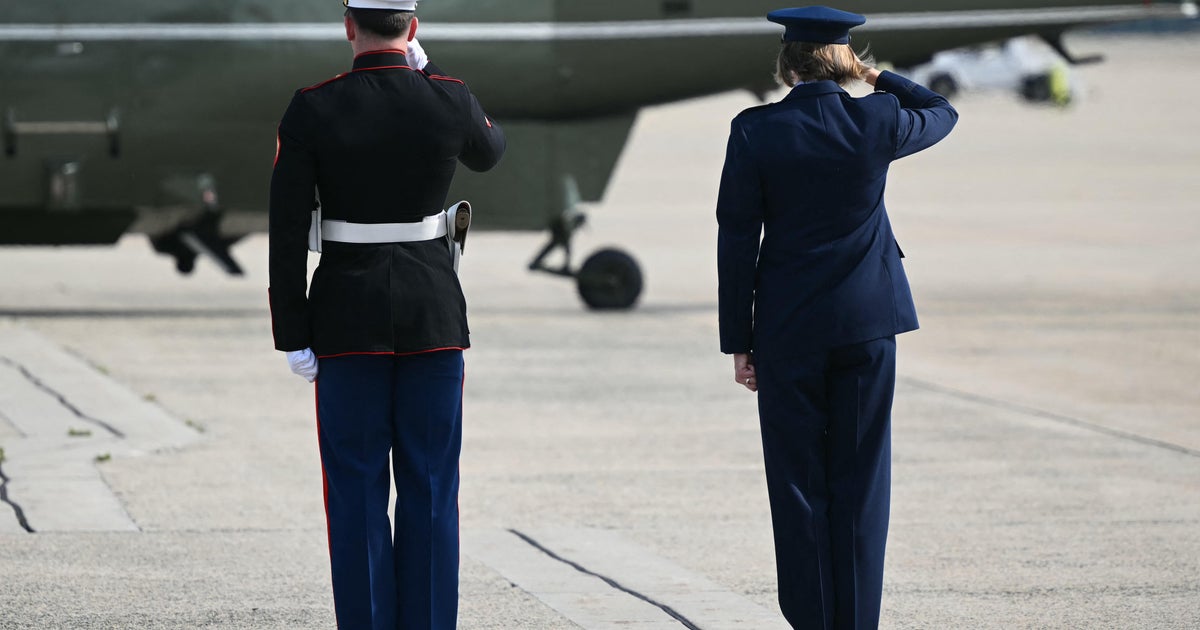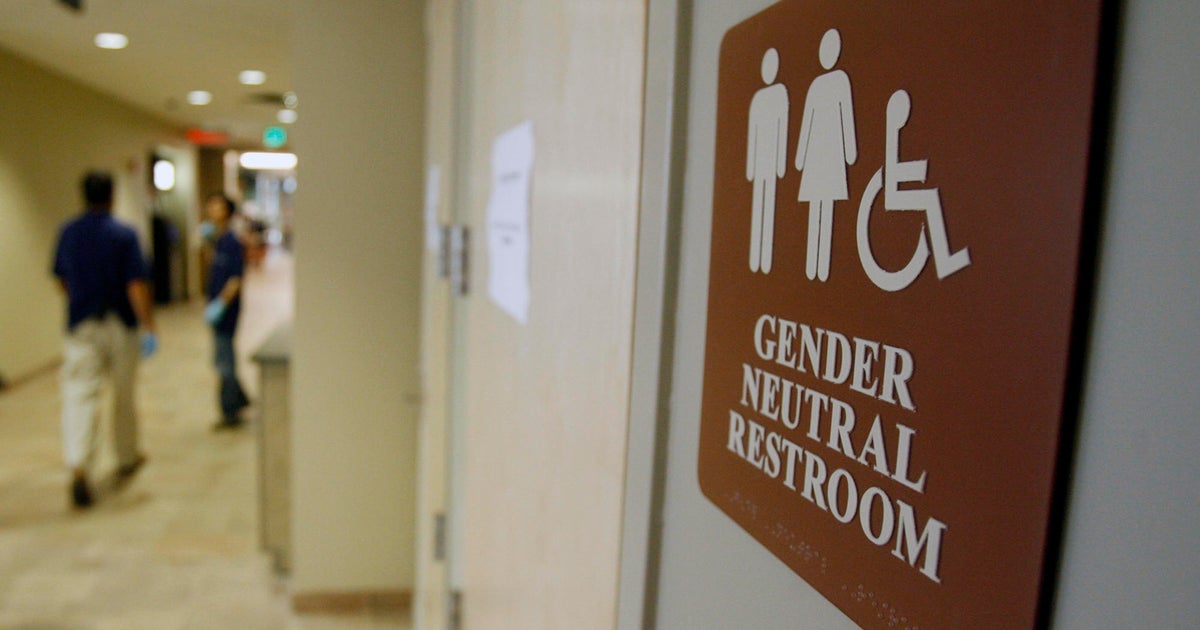Controversial Trump administration ban on transgender troops goes into effect
The Pentagon's controversial policy for transgender service members goes into effect Friday. The new regulation keeps transgender troops from serving in the nation's military openly and also "blocks all use of DoD or DHS resources to fund sex reassignment surgical procedures."
The Defense Department says people can serve if they remain their biological sex. They estimate that nearly 15,000 troops identify as transgender and could potentially be impacted by the policy.
Under the new policy, any person who has been diagnosed with gender dysphoria and has received medical treatment – either hormones or surgery – will not be allowed to join the military. If they have been diagnosed, but have not received medical treatment, they will still be eligible to join.
All transgender soldiers currently serving will be allowed to stay in uniform, however, regardless of whether they have received medical treatment.
The Supreme Court ruled that the military could enforce its policy on transgender service members after President Trump called for a blanket ban back in 2017 via tweet, claiming the U.S. military "cannot be burdened with the tremendous medical costs and disruption that transgender in the military would entail." The revised policy that would still ban most transgender people from military service was later approved by then-Defense Secretary James Mattis last year.
Despite the High Court's ruling, there's been numerous legal challenges since the ban's initial roll out. Sharon McGowan, chief strategy officer and legal director for Lambda Legal -- the country's largest national legal defense organization for LGBT persons, told CBS that the legal fight against the administration's policy is now on "high burn" as four separate lawsuits against the administration continue to work their way through the courts.
McGowan said she was "confident" any one of those cases would prevail in knocking down the policy, saying the policy on its face is "discriminatory" and "doesn't even satisfy basic legal scrutiny."
"The notion that somebody should have to walk way from life saving medical care in order to continue serving their country for lack of better words, is absurd, cruel, and just shows how completely upside down this policy is," said McGowan.
She added that the ban is "so divorced from reality and so disrespectful to men and women who are literally putting their life on the line to defend the Constitution."
Meanwhile, Blake Dremann, president of SPART*A, an advocacy group for actively serving transgender military members, told CBSN that the policy effectively creates two classes of transgender people serving in the military, and forces those who have not been diagnosed to "choose between serving their country and keeping their jobs and seeking the medically-necessary care for gender dysphoria."
Dremann, who is the first openly transgender service member to be promoted in the armed services, said the transgender ban will be "worse" than the military's previous "Don't Ask, Don't Tell" policy instituted by the Clinton administration in 1994, effectively banning openly gay, lesbian, or bisexual persons from military service.
"Here we have identified an issue that is treatable, does not keep people from deploying or anything from doing their jobs and we've told our troops that you have to choose between treatment and your job which, for many folks, their families depend on that. And while they say we can identify as transgender openly, that negates the fact that this still is partially a medical condition that requires treatment," said Dremann
Dremann argued that military personnel will now be forced to live "two lives" and be "one person at work and one person at home" which could negatively impact military readiness.
"It keeps people from bringing their whole selves to work and if anyone in the military knows, you can not leave anything off the battle field, you have to be able to be completely present in order to be effective and put bullets down range," Dremann said.
Meanwhile, Ashley Broadway-Mack, President of AMPA, the nation's largest organization of LGBTQ military families, said in a statement to CBS News, "With the implementation of this transgender military ban, our nation is once again shamefully forcing brave American heroes to hide who they are in order to serve."
Broadway-Mack added that the Trump administration is "inflicting tremendous harm on our service members, their families, and the military as a whole."
Human Rights Campaign President Chad Griffin echoed that sentiment, saying "The implementation of Donald Trump and Mike Pence's trans troop ban is a stain on our nation's history."
2020 Democratic presidential contender and openly gay veteran of the War in Afghanistan Mayor Pete Buttigieg also slammed the Commander-in-Chief, suggesting that Mr. Trump, "a president who pretended to be disabled in order to avoid serving when it was his turn" was "destroying" the careers of trans service members.



